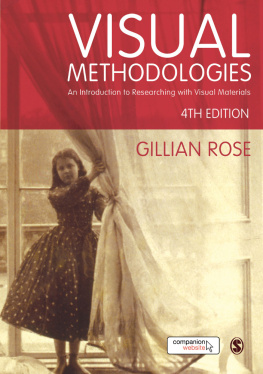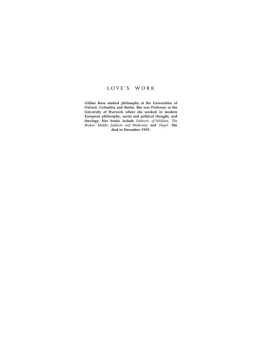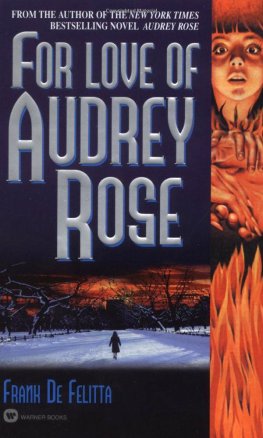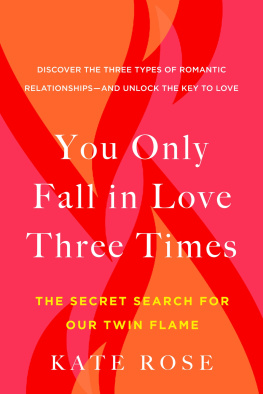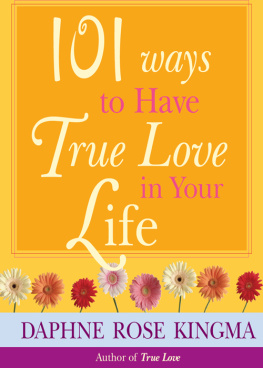GILLIAN ROSE (19471995), who is now recognized as one of the most important and influential critical thinkers of her time, was a British philosopher and writer. For many years she taught at Sussex University, drawing large numbers of research students, before she accepted a chair in social and political thought at Warwick University. Her major works, which ranged from Continental philosophy to Judaism, include The Melancholy Science, Hegel Contra Sociology, Dialectic of Nihilism, The Broken Middle: Out of Our Ancient Society, Judaism and Modernity, Mourning Becomes the Law, and Paradiso.
MICHAEL WOOD teaches at Princeton and is the author, most recently, of Yeats and Violence.
1
My first meeting with Edna was inauspicious.
It was May 1991. I had just arrived in New York for the first time in five years, and had been met at Newark Airport in New Jersey by Jim. Unsure of what to expect, I first walked up at the barrier to the wrong manto someone who looked like a caricature of Jim as I remembered him in good health: well over six foot tall, a mane of blue-black hair, thickset, welcoming. Suddenly aware of my wilful mistake, I stopped just short of an inept embrace. I stood my ground and then I saw him. His posture was as crumpled as the clothes hed obviously slept in, his hair had turned gingerish and it rose from his head in wild clumps with bald patches in between. This uneven growth dominated his manners, too, as I realised after one minute in the taxi heading towards Manhattan, which loomed in archetypal and mocking splendour ahead of us. My formerly laconic and witty friend had become loquacious, needy, addressing with urgent familiarity everyone we chanced to have dealings with over the next few daystaxi-drivers, bell-boys, waiters. And when he wasnt holding forth to those nearest to him, he issued a continuous, low, moaning sound, a piteous cradling for the inner, wounded being that, strangely, had surrendered to the publicity of the city streets. On Broadway, from Columbia University, where Jims apartment was located on 111th Street, down to the Lincoln Center, where I went early morning swimming, I soon learnt to recognise multitudes like him: the old men in their forties, shrivelled, drained, mumbling across the intersections, icons of AIDS, amidst the bodiful vibrancy of those striding to and from work and subways and stores.
By the time we reached Ednas apartment on West End Avenue, I was assailed by even more apprehensions. I felt uncomfortable meeting the two people who were offering me accommodation for the first time in the company of this unkempt and erratic beingmy beloved friendto visit whom was, I then thought, the whole purpose of my trip.
I neednt have worried, for each successive encounter proved as bizarre in its own way as the first. Gary, Ednas employer, was waiting in the foyer of 365 West End Avenue. I had been told that he was a private scholar, a man of means and intellect, meticulous and courteous. So he was: but I had not been told that he was afflicted with a long-term wasting disease that left him with uneven gait and hands locked in a rictus-like claw. Gary was utterly unfazed by Jims doleful appearance and low-pitched litany, for he was only too eager to communicate the essentials concerning Edna in the short space of time we would have between leaving the lobby and reaching her fifth-floor apartment via the elevator. I knew that Edna was Garys secretary and was expecting a dapper, matronly woman, perhaps in her fifties. Edna, Gary hurriedly explained, was ninety-three years old. She had recently contracted cancer of the face; and, as a result of a prosthetic jaw, had had to relearn to speak. When I then handed Gary the litre of Laphroaig purchased at Duty Free, he exclaimed, Please God, youre not bearing whisky as a gift for Edna! In her eighties, Edna had secretly started drinking a bottle of Calvados every day, until she had had to be hospitalised, detoxified and warned that her octogenarian life was at risk from her newly acquired habit. Thus we were ushered into Ednas presence and, increasingly confused, I met my Intelligent Angel for the first time.
Edna took Jim on, greeting and welcoming us both as her immediate Darlings, in a rasping but emphatic voice. She settled us into her huge high-backed armchairs, a legacy, she explained, of the outsize men in her family. In this family, it turns out, there are no surviving men, just Edna, her sixty-eight-year-old retired mathematician daughter and her two granddaughters. Edna was diminutive amongst the heavy and ornate furniture; her tiny, wrinkled round face dominated by a false nose, which lacked any cosmetic alleviation whatsoever. Smooth and artificially flesh-coloured, with thick spectacles perched on top, this proboscis could have come from a Christmas cracker. In the early mornings, when I emerged from my room on my way to swim, Edna would have already been installed in her reading chair for an hour or two. She would call out to me to enquire whether I would mind if she were not to put on her nose. By then, not only did I not notice the nose, but, if anything, I found the neat, oblong black hole in her face even more appealing.
Edna goes out to work for Gary seven days a week, taking the bus uptown, but often walking the thirty or so blocks back downtown. She acts as Garys hands, word-processing his scholarship and correspondence; he in turn acts as the guardian of her much less infirmities, lending support to her arm as they climb the stairs to the restaurant on Broadway and 112th Street where they take lunch daily.
Meeting this third extraordinarily afflicted person within the first hour of arriving in New York transformed the difficulties of the first two meetings. Edna and Jim were soon exchanging stories from New York music life. Ive taken part in New York music life since 1904, mused Edna. She would have been seven years old then. And I watched, not for the last time, the delight that flew between the fading forty-seven-year-old and the one full of ninety-three years.
Later, when I found myself alone with Edna, there were certain things which she was determined to make clear: My marriage was not happy. My husband was disappointed with me. Although, when he died, she added, without a hint of triumph or rancour, I was the only person permitted to attend him. The nurses in the hospital had to assure him that they were Edna.And for good measure, she also insisted that she did not eat vegetables. Nor, as she showed me around the apartment and we entered her bedroom, had she painted the room pink as long as her husband was alive: I dont want you to think that I made a man sleep in a pink room.
Edna believes in magic. One of the many books that she handed over to me after her early morning reading sessions was The Secret Garden by Frances Hodgson Burnett. And the magic in that book is, I think, the kind of magic which Edna believes in: the quiet and undramatic transmutation that can come out of plainness, ordinary hurt, mundane maladies and disappointments. Thus she lives, while Jim, locked in a fatal embrace with maternal dreams, where everything, he groaned, in one of his rare moments of lucidity, begins with shis mothers name was EstherJim had to die.
What Edna did not tell me then, did not tell me until several years later, after her ninety-sixth birthday, when Jim was long dead and my own circumstances had radically changed, was that she had first been diagnosed as having cancer when she was sixteen years oldin 1913. She graduated from Barnard College in 1917. How can that bethat someone with cancer since she was sixteen exudes well-being at ninety-six? Could it be because she has lived sceptically? Sceptical equally of science and of faith, of politics and of love? She has certainly not lived a perfected life. She has not been
Next page


